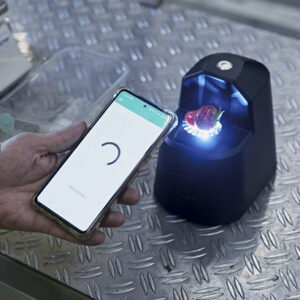
Technology has revolutionized senior care and vastly improved the quality of life for senior citizens. One such example is voice enabled technology, which has made the lives of seniors far easier and more enjoyable by helping them complete basic tasks, connect with loved ones, and keep track of their schedules.
Jonathan Ramaci is a mobile product entrepreneur and innovator from Mount Pleasant, South Carolina. He has been at the helm of many successful and innovative companies and he is an expert in voice enabled technology. He provides his insight into the important role that voice enabled devices play in senior care.
How Senior Citizens Can Benefit from Voice Enabled Devices
First, voice enabled devices can do the work for senior citizens who might not have the patience or stamina to do it themselves. Whether a senior citizen is able to carry on as they did when they were younger or not, they shouldn’t have to in their old age. After all, they’ve spent their life working and taking care of their family, now should be a time to relax and enjoy life. Voice enabled technology can help senior citizens do just that. Voice command speakers like Google Home or Amazon Echo can easily control other smart devices in your home. For example, if you wish to turn the lights off or adjust the thermostat, all you have to do is ask; you don’t even need to leave your chair. Alternatively, if you want to play music, hear the latest news, or learn the weather forecast, your voice enabled device is there to help. There are even smart cleaning devices, such as robot vacuum cleaners, that can help you take care of housework without lifting a finger. Further, even though not all voice enabled devices can completely do the work for you, they can help make your life much easier. Jonathan Ramaci of Mount Pleasant, South Carolina, frequently cites the example of using a device like Google Home to create a grocery list or using Amazon Echo to order a product off of Amazon to be delivered to your front door.
Second, in addition to making the lives of senior citizens easier by taking on some of the extra work, voice enabled technology can also result in less stress or worry, says Jonathan Ramaci. For example, for seniors who might be worried about their memory, voice enabled devices can add tasks or events to your virtual calendar and remind you of these events. Alternatively, if you’re going on a vacation, you don’t have to worry about your home if you have voice enabled technology in the house. Through such technology, you can have the lights turned off during the day and back on at night to make it look like someone is home. With a complementary smart security system, you can also make sure that your house remains safe and secure while you are away.
Finally, Jonathan Ramaci believes that one of the great benefits of voice enabled technology in senior care is that it helps provide companionship and allows seniors to get an answer to every question they may have. While not a replacement for a human being, voice enabled devices can make one feel less lonely. After all, they can answer questions, play music, read out the news or weather, and connect you with other family members or friends by calling or texting a loved one and even reading any texts you receive out loud. This can make a big difference in the lives of a senior citizen who lives alone. Further, it can help them learn and encourage curiosity through the fact that this technology can answer a wide variety of questions. Some seniors aren’t tech-savvy and might prefer the ease of a voice enabled system to a more complicated computer or smartphone. So rather than typing a question into Google or trying to find an answer for it elsewhere, they can simply ask their device. For example, if you want to know the score of a hockey game or a recipe for lemon meringue pie, you can ask your voice enabled device.
Types of Voice Enabled Devices for Senior Citizens
According to Jonathan Ramaci, there are two main types of voice enabled devices for seniors: smartphones and smart speakers. Every smartphone these days has voice command capabilities or a voice controlled personal assistant. A prime example of this is Apple’s Siri, which is available on the iPhone. Siri can read text messages out loud, play music, add events to your calendar, and answer questions. Although Apple’s Siri is the most popular, all types of smartphones, including those made by Samsung and Google, have their own version of a smart assistant. Meanwhile smart speakers are another popular choice in senior care. Google Home, Amazon Echo, and Apple HomePod are all examples of voice enabled smart speaker devices. All three of these popular speakers have similar capabilities, in that they can answer simple questions, set calendar reminders or alarms, and connect to other smart devices in your home in order to do things like adjust your thermostat or turn your lights off. However, Amazon Echo has an added feature that is very relevant to senior care, which is that it allows senior citizens to request help or notify loved ones if they are in a bad situation, whether it be health or safety related. The Amazon Echo can also remind seniors to take their medication. Overall, the two main types of voice enabled devices in senior care are smartphones and smart speakers. However, within these two niches, there are tons of different brands offering similar products, so it is up to you to decide which one is right for you.
Jonathan Ramaci on the Best Voice Enabled Technology for Senior Citizens
As listed above, the three most popular voice enabled devices on the market are hands down the Amazon Echo, Google Home, and Apple HomePod. However, this doesn’t mean that these are necessarily the best devices for senior citizens. In fact, Jonathan Ramaci of Mount Pleasant, South Carolina, shares that there are several other companies that have created voice enabled technology specifically targeted at seniors, rather than at the general population. He specifically points to LifePod, a two-way voice service for older adults and chronically ill adults that helps them communicate with their caregiver. LifePod is controlled by a remote caregiver through an advanced online portal that can schedule check-ins, reminders, and perform other useful health-related tasks. Ask My Buddy is another helpful platform. It can be used via the Amazon Echo or Google Home and what it does is allows seniors to send a “I’m ok” or “Check on me” notification to a previously set up personal network of loved ones. All this technology requires is your voice; you simply have to ask for help and the device will make a voice call or send a text or an email, depending on your preference, to each of your chosen contacts.


